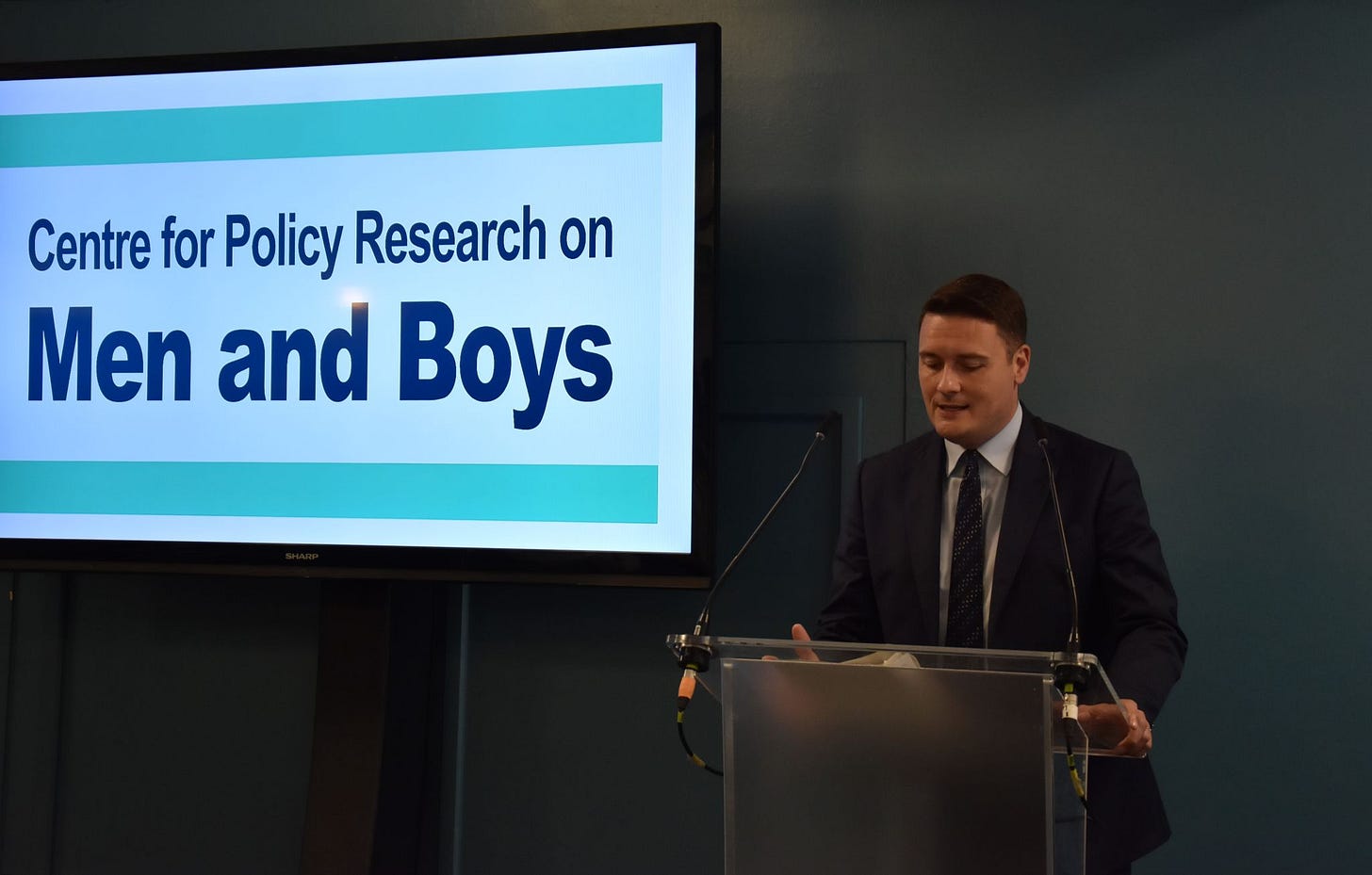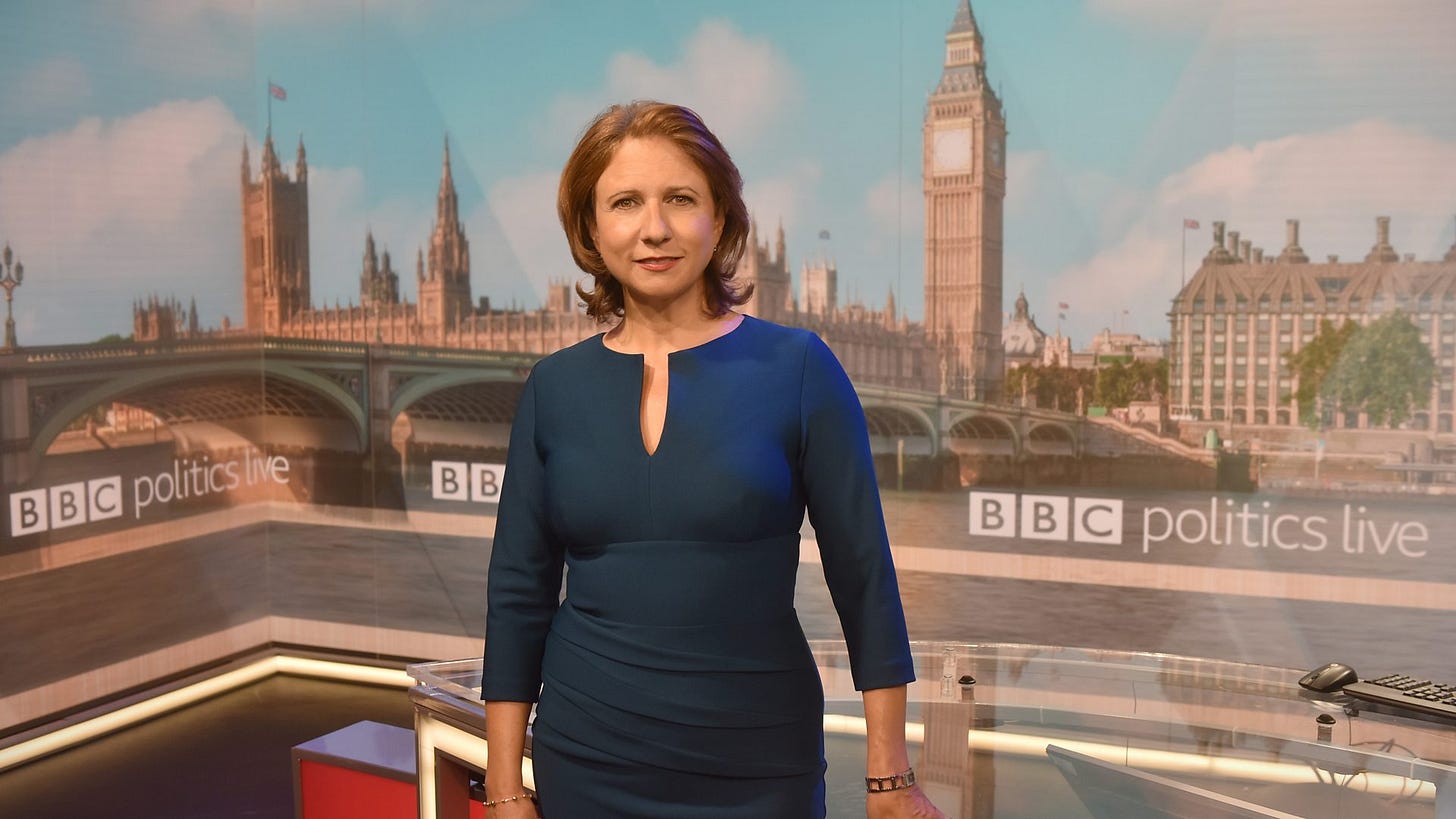I’m just back from the UK, the most beautiful nation on earth, in May. And when the sun is shining. I spent some glorious time with family and friends, but the professional highlight was launching a new think-tank, the Center for Policy Research on Men and Boys.
I’m Chair of the CPRMB Board, where I’m joined by a pretty stellar bunch of scholars, writers and practitioners. (Just to underline the Britishness of the whole enterprise, there are Lords, Baronesses and Knights involved.)
The mission of the new Center, like that of its big brother in the U.S., the American Institute for Boys and Men, is to produce high-quality, non-partisan research on the challenges facing men and boys, and advocate for effective solutions, in a non zero-sum manner.
The main speaker at the launch event in Westminster on May 14th was the Health Secretary, Wes Streeting MP. Wes has already emerged as a real leader on this issue, launching a Men’s Health Strategy shortly after taking office last year.
At the launch, Streeting went even further than in the past in making the case for paying more attention to the issues of boy and men. As he said:
The truth is it can be quite tough to be a young man in today’s society.
Lots of boys, particularly those from working class backgrounds like mine, are falling behind at school and are worried about their futures.
The proliferation of toxic influences and content on social media is leading a lot of boys astray. A lot of content on social media that provided a real challenge for girls in terms of positive body image and what it meant to be a perfect girl or a woman in our society - those challenges are now applying to men and boys in similar if sometimes different ways.
And all of this is contributing to a crisis in masculinity.
Since taking on the health and social care brief in opposition 3 and a half years ago, I’ve been very outspoken about the fact that it takes 7 and a half years for women to receive a diagnosis for a common condition like endometriosis, or that a universal experience like menopause is still treated as if it’s a rare condition affecting alien species.
And I feel just as enraged about the inequalities in men’s health, frankly. Men are living 4 years less than women. The gap widens if you just look at working class communities. Men are disproportionately affected by cancer, cardiovascular disease and type 2 diabetes.
The tragedy is that many of these conditions are treatable and even preventable. Black men are twice as likely to die from prostate cancer as White men.
And suicide is the number one killer of men under the age of 50, which was a fact so shocking that I nearly fell off my chair when I first heard it and actually asked for the statistic to be checked. And the fact that it’s now more commonly cited should not make the fact itself less shocking or outrageous.
As Health Secretary, his focus was of course within his own brief. But as the first report from CPRMB, Missing Men, shows there are plenty of challenges for boys and men in the UK in other areas too, including education and employment. These will be areas of focus for the Centre going forward, including a planned Commission on Male Education.
But the most important task at the launch stage is to set the right tone and adopt the right frame. It is vital to allay reasonable fears over distracting from or even displacing the necessary ongoing work on behalf of women and girls. This was an issue addressed explicitly at the launch, not just by me and Wes, but by Jo Coburn, a veteran TV anchor at the BBC. Coburn described her own discomfort with the topic, given the challenges still faced by women especially in the workplace, while acknowledging the realities of the issues being raised. I appeared on her show, Politics Live, the day before the launch. There’s a short clip here:
This is a conversation that necessarily involves some discomfort, especially on the part of women. In fact I think anyone that does not feel some discomfort about the conversation probably should not be in it. But I feel equally strongly that this discomfort is no excuse for avoiding the conversation altogether.
The progress on this front even in the last few years has been really remarkable, especially on the center-left of the political spectrum. In the U.S., Governors like Wes Moore and Gretchen Whitmer have declared new initiatives to support boys and men. Now the UK is leading the way too. Streeting was blunt about our need to do two things at once, saying:
Nothing frustrates me more than when men’s health and women’s health are pitted in opposition to each other, as if by focusing on the men’s health strategy, we are in any way detracting from the work we’re doing on women’s health.
This is not an either or.
It very much has to be hand in hand, and we will address both.
And it also does a disservice to lots of women in our society, as if somehow women don’t care about their fathers and grandfathers, their brothers, their sons, their nephews any less than we care about our mothers or grandmothers, our sisters.
It’s really serious.
So I actually think that we are all in this together, and we will succeed as a society if we’re working together to tackle the injustices and inequalities that affect men and women.
Yes: men and women, not men or women. We rise together, or not at all. (You can read the whole speech from Wes Streeting here.)
As you can imagine, I’m delighted to see this work flourishing in other countries, and across the political spectrum.
Do follow the work of CPRMB as well as AIBM, and let me know what you think of our progress to date.







Yes, and . . . Why can't we just talk about boys and men and the struggles they face without framing the issue in the context of conflating issues like women's health, class, or race?
It seems like we are afraid to straight out say, "Our boys and men and hurting." Why?
Yes, “women *and* men”.
But I can’t shake the feeling that the requirement to assure women that focusing on men’s issues won’t affect the efforts to address women’s issues *at all* is just another way of saying “please don’t worry, you’re still #1 priority, and men are merely asking for a seat at the table.”
That doesn’t sound like “women *and* men” to me. It sounds more like men’s issues *may* be addressed only under certain conditions or the deal’s off.